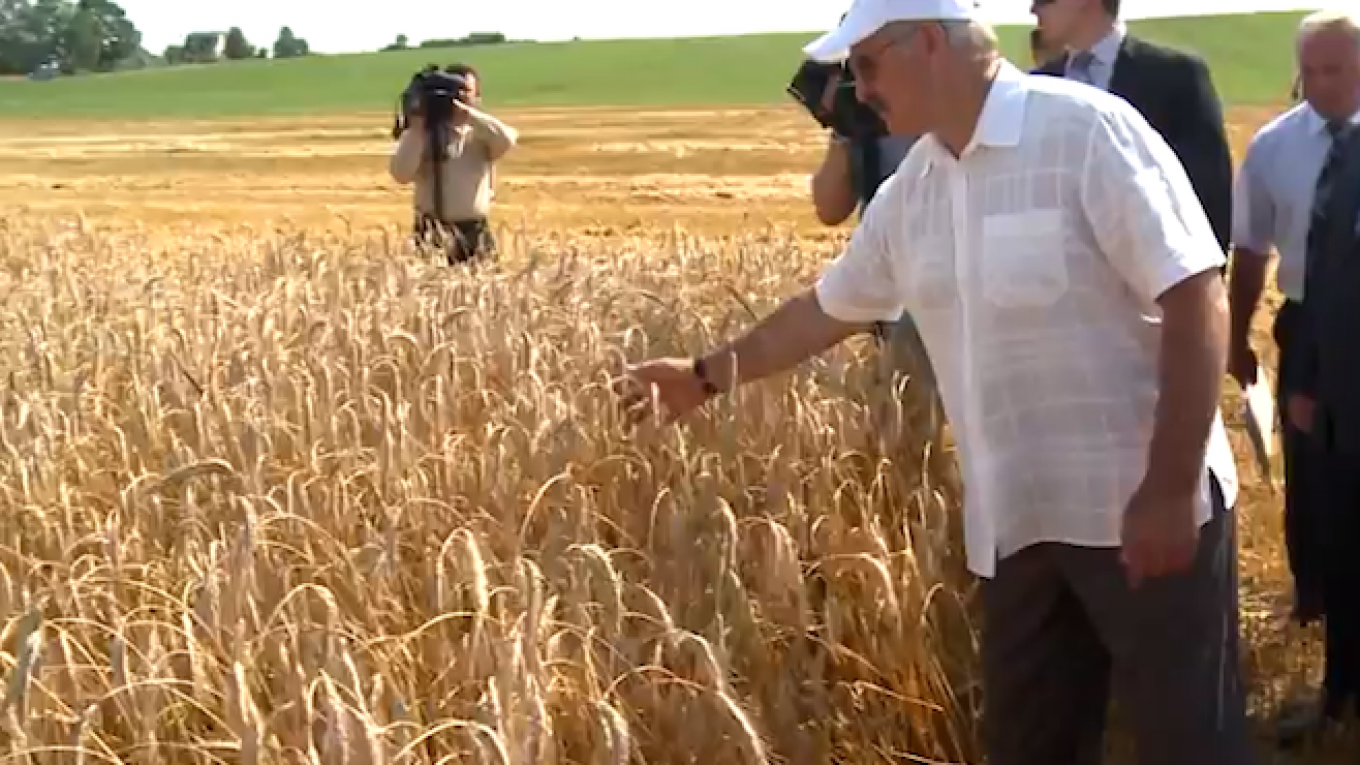Belarus stands to profit off the bans that Russia has imposed on a range of Western food imports, with a chance to both boost its own production and, potentially, become a transit zone for banned European goods, economists said Friday.
Leonid Marinich, Belarus's first deputy agriculture minister, said late last week that his country was ready to shoulder the burden in the event of a food shortage in Russia, referring to the opportunity as a modern-day equivalent to the 19th century gold rush in Klondike, Canada.
"We can make up for many Western-made food products," Marinich was quoted as saying by RIA Novosti. "We can supply a variety of cheeses…we can replace Polish apples and Dutch potatoes, we have them all," he said.
The Belarusian minister's magnanimous promises came shortly after the Russian government published an extensive list of Western food products now barred from import to Russia in retaliation against European and U.S. sanctions on Moscow over the crisis in Ukraine.
The ban will derail imports worth an estimated $9 billion a year, including fruit and vegetables, dairy, meat products and fish from the European Union, the United States, Australia, Canada and Norway.
Almost as soon as the food bans were announced on Thursday the Russian Internet was chuckling over a joke that tellingly anticipated Belarus's new role.
In the joke, a customer in a busy Russian store is offered some mussels with the improbable label "Made in Belarus." When the customer raises an eyebrow and says that this is impossible — Belarus is, after all, landlocked — he is told that the mussels were made in Belarus, period, and has no option other than to buy the "Belarusian mussels."
The joke is not so far from reality, as Belarus has, in fact, already dabbled in so-called "grey exports" before, according to Dmitry Bolkunets, an economist at Moscow's Higher School of Economics.
"In recent years, Belarus has successfully exported Polish pork to Russia, which was not produced within the country but was sold with a Belarusian label," Bolkunets said.
Belarus exports goods duty-free to Russia thanks to a free trade zone between the two countries, meaning foreign producers can potentially cut costs by selling their goods under a Belarusian label.
With the new import bans, Belarus could profit by offering its services as a transit zone for in-demand European products, Bolkunets said. However, Russia can be expected to put pressure on Customs Union partners Belarus and Kazakhstan to enforce the bans, he added.
Even if Belarus decides to abide by Russia's sanctions against the West, it can still profit off them by substantially boosting its own production and sales in Russia.
According to Alexander Knobel, head of the Gaidar Institute's international trade laboratory, Belarus has "a great potential" to replace Russia's milk imports from the EU.
"[Belarus] can take a substantial bite out of this trade volume, which is worth several billions of dollars [a year]," Knobel said.
According to the National Union of Milk Producers, the import bans will leave Russia short 2 million tons of milk by the end of this year.
Another impact of the bans could be the rerouting of European goods formerly bound for Russia onto the Belarusian market — likely with a discount, as producers will be desperate to sell them off.
"Producers in the Baltic countries, for example, will not be able to supply their products to Russia, they may be forced to sell them cheaper to Belarus or Kazakhstan," Knobel said.
These bargain products could then serve as a resource base for local producers making goods oriented for export to Russia, where prices are expected to rise due the break in supply chains from the EU, Knobel said.
All in all, Belarusian producers could be left with a comfortable profit, even as many European farmers struggle to adapt to the sudden loss of a key market.
According to the Economic Development Ministry, Russia imported $4.5 billion in food products from Belarus last year. Agricultural products — mainly milk, dairy products and meat — make up over a quarter of Belarus's exports to Russia.
See also:
Russia's Food Ban Strikes Its Own Consumers
Turkey, Latin American Will Reap the Rewards of Russia's Import Bans
A Message from The Moscow Times:
Dear readers,
We are facing unprecedented challenges. Russia's Prosecutor General's Office has designated The Moscow Times as an "undesirable" organization, criminalizing our work and putting our staff at risk of prosecution. This follows our earlier unjust labeling as a "foreign agent."
These actions are direct attempts to silence independent journalism in Russia. The authorities claim our work "discredits the decisions of the Russian leadership." We see things differently: we strive to provide accurate, unbiased reporting on Russia.
We, the journalists of The Moscow Times, refuse to be silenced. But to continue our work, we need your help.
Your support, no matter how small, makes a world of difference. If you can, please support us monthly starting from just $2. It's quick to set up, and every contribution makes a significant impact.
By supporting The Moscow Times, you're defending open, independent journalism in the face of repression. Thank you for standing with us.
Remind me later.


